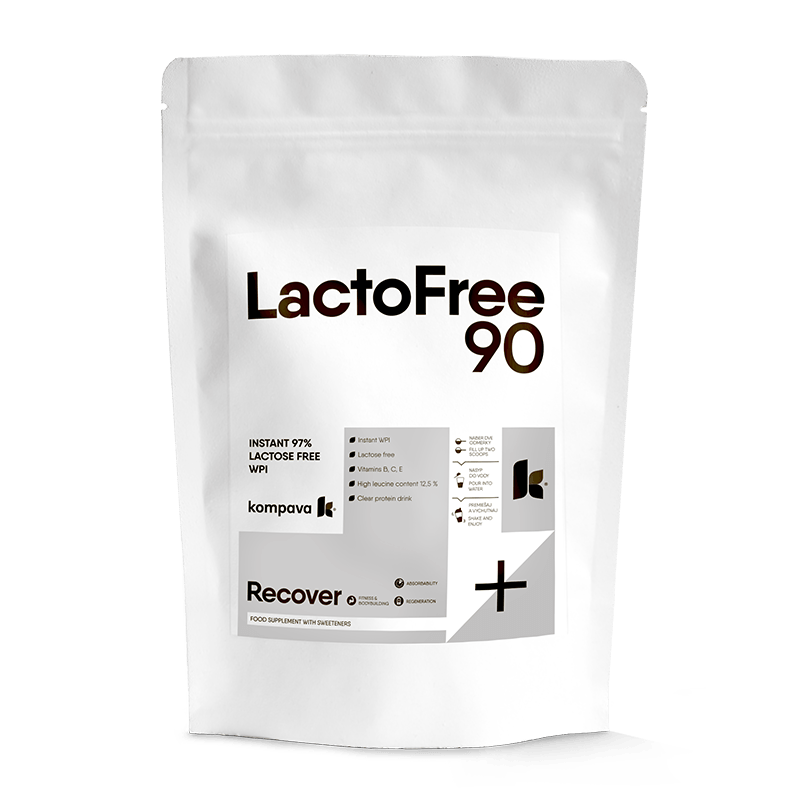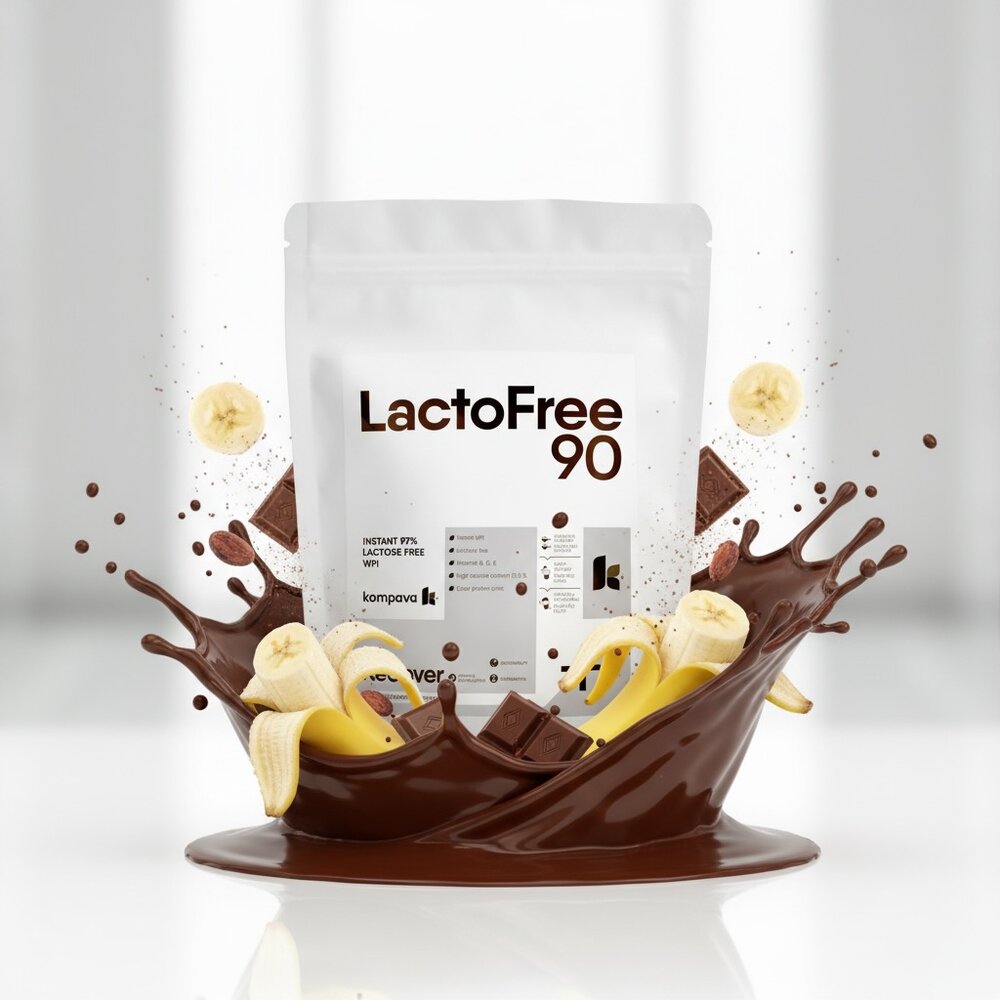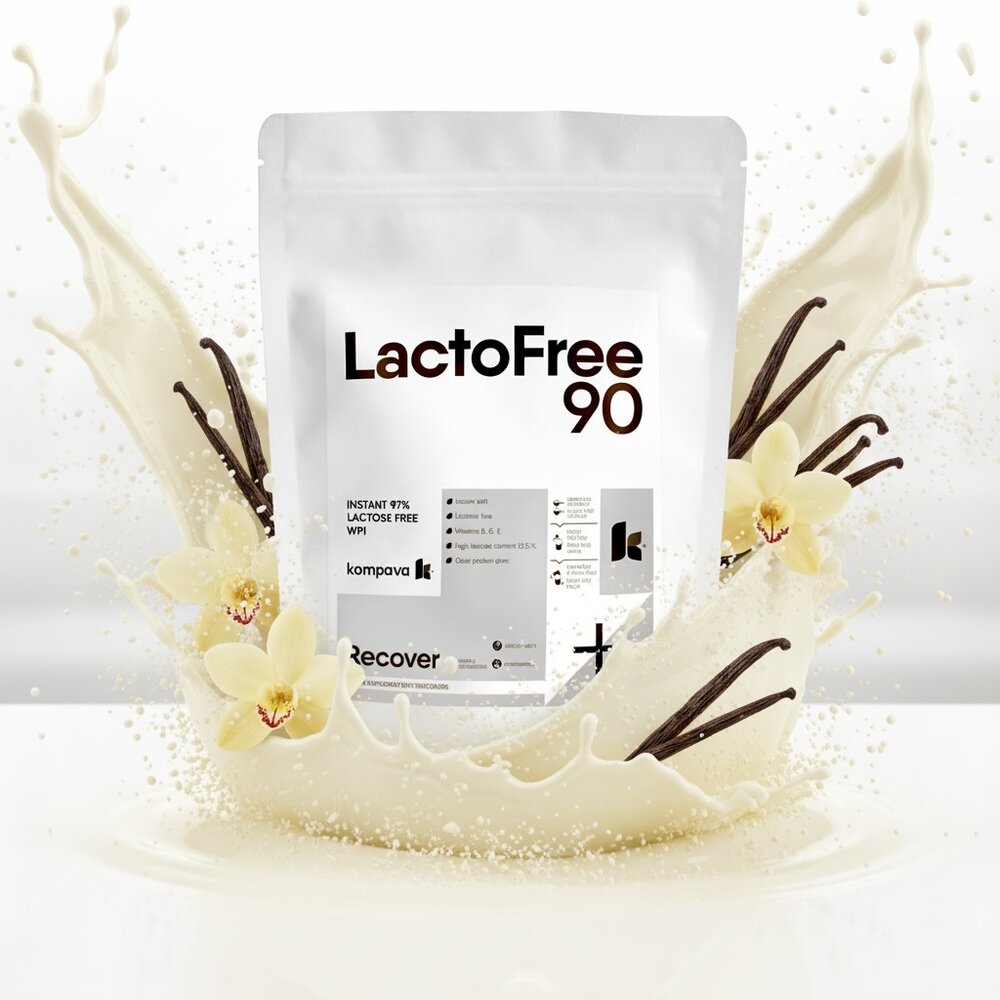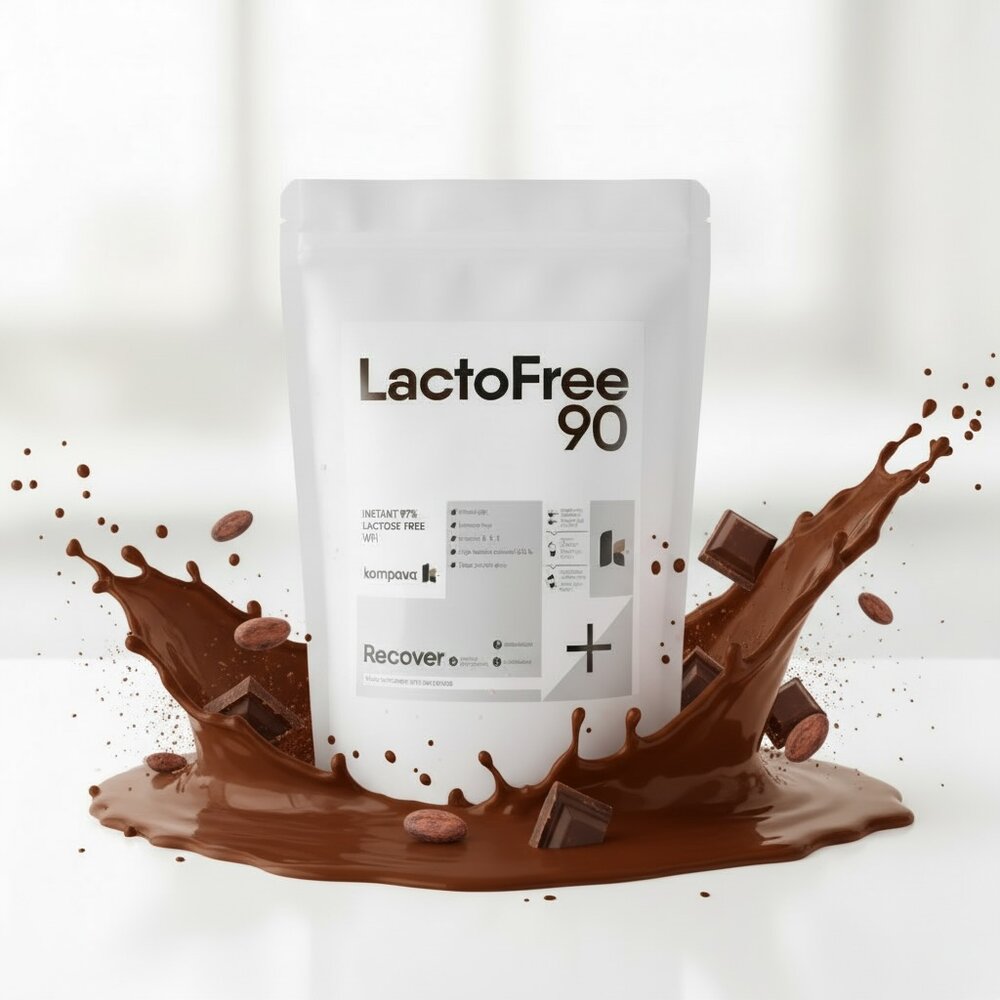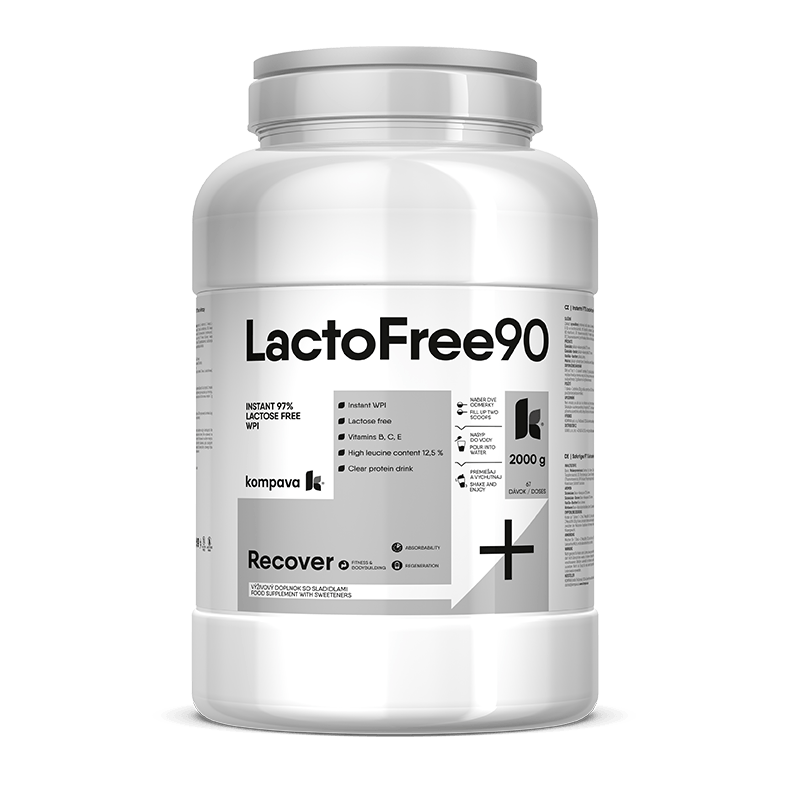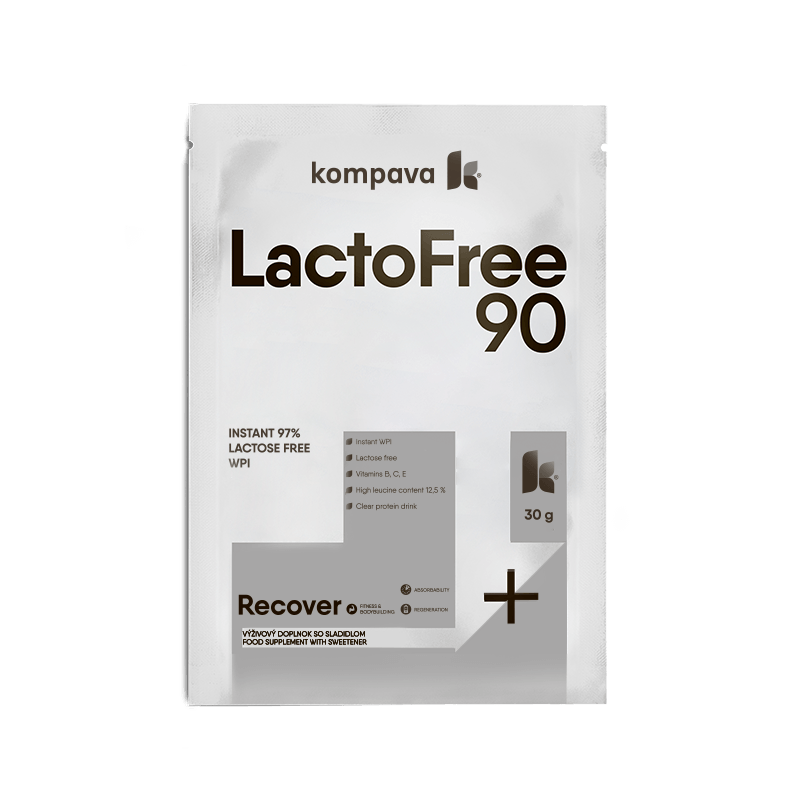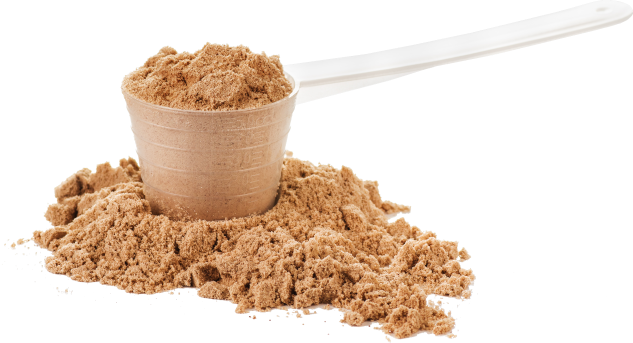
LactoFree 90 is an ideal choice for enthusiasts of various sports disciplines who want maximum muscle growth without unwanted fat gain. It has a low energy value (only 119 kcal in one serving) and minimal fat and carbohydrate content (no sugar).
Formulated especially for people with lactose intolerance and sensitive digestion.
It does not contain lactose (milk sugar), gluten or casein, which makes it an ideal choice for people with various intolerances, such as lactose intolerance, celiac disease or casein allergy. It does not burden the stomach, it is easily digestible, therefore it is also suitable for people with sensitive digestion. Thanks to the gentle removal of lactose, LactoFree 90 preserves the valuable components of whey, which are important for the immune system and the biological activity of proteins, such as glycomacropeptides, immunoglobulins and lactoferrin. And in addition, it also contains a sufficient amount of calcium and only a minimal amount of denatured proteins.
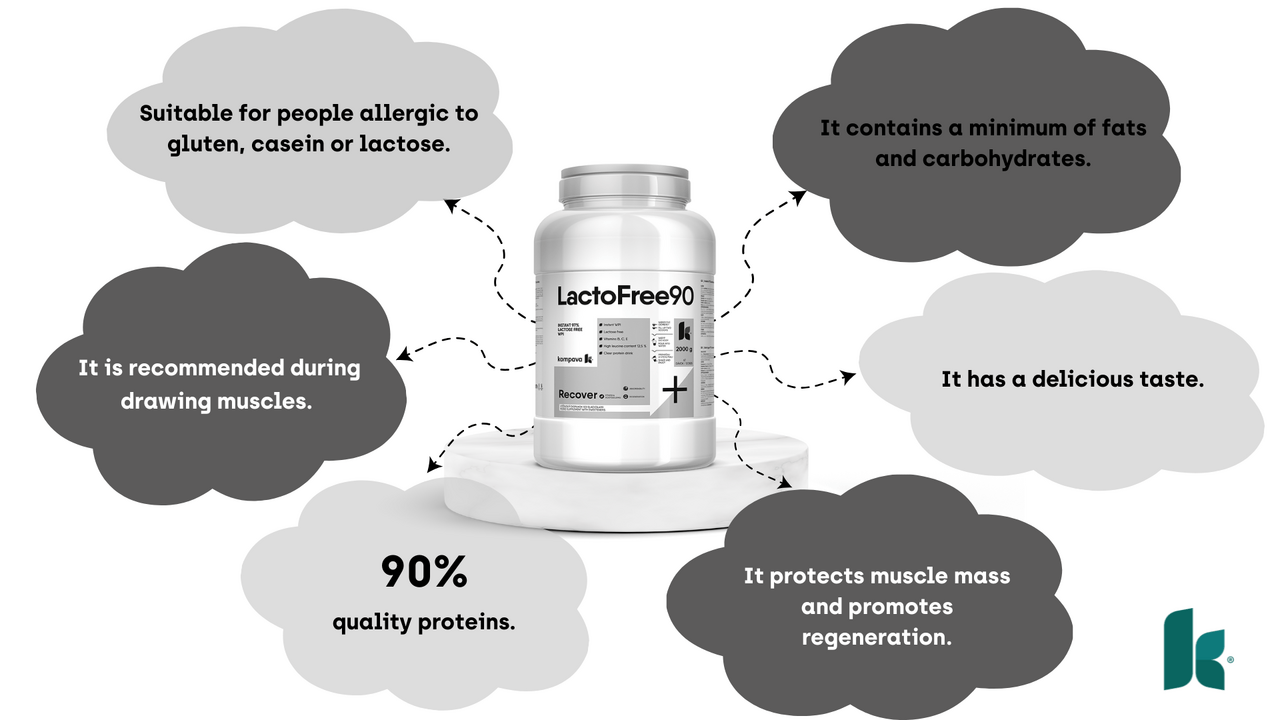
Protein is one of the key nutrients that you should take after physical activity:
- proteins regenerate muscles after physical exercise,
- proteins are necessary for the production of various enzymes and hormones that control metabolic processes in the body,
- proteins restore energy reserves in the body,
- consuming protein can help maintain a feeling of satiety and prevent overeating later.
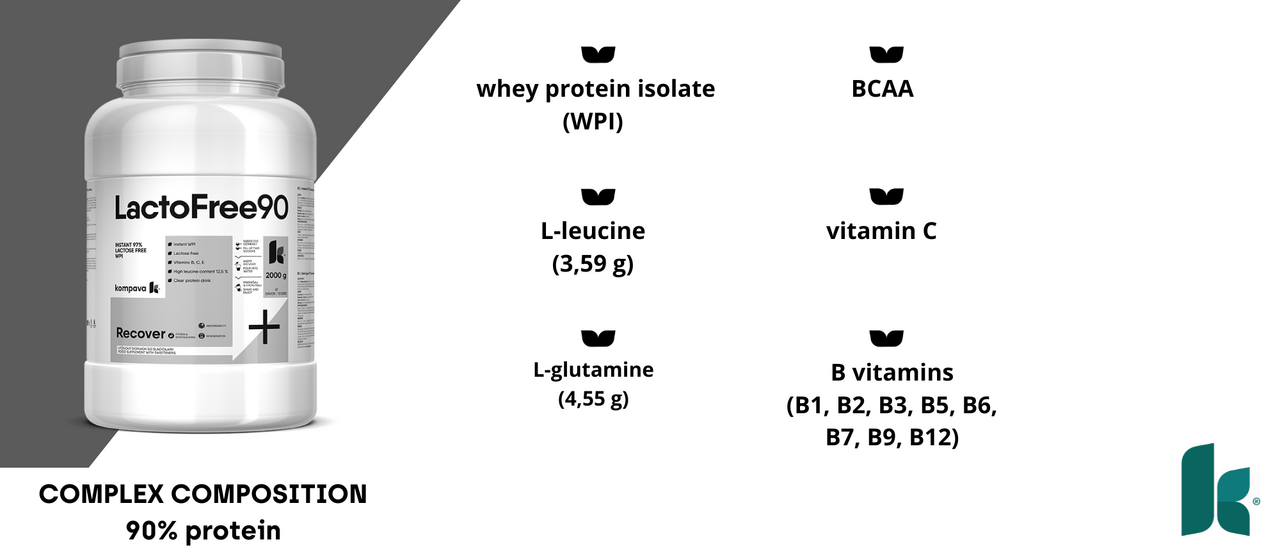
LactoFree 90 contains
- 97% Whey Protein Isolate (WPI)
It is considered to be the highest quality and purest form of whey because it will ensure maximum performance for the body. It contains a high concentration of BCAA amino acids (up to 6.7 g in 1 dose), which are key for rapid regeneration and building muscle mass. - L-leucine
An essential amino acid from the BCAA group, which is of particular importance for protein synthesis. This amino acid has unique properties, because its influence on the synthesis of muscle proteins is several times higher than that of any other amino acids. Leucine plays a key role as a trigger for the process of muscle protein synthesis, which ultimately promotes muscle growth and regeneration of muscle tissue. - L-glutamine
L-glutamine is an amino acid that has important roles in the body, especially in muscle tissue and the immune system. L-glutamine is often referred to as the "regeneration amino acid" because of its role in the repair and regeneration of muscle tissue. Furthermore, it helps to minimize muscle catabolism (decomposition of muscle tissue into energy), thus maintaining muscle mass and sports performance. Glutamine is also an important player in maintaining healthy function of the small intestine, mucosal integrity and immune response. Its sufficient supply from food is important for maintaining the overall health of the digestive system. - Vitamin C
It supports the immune system, collagen production and has antioxidant properties. Intense exercise can temporarily suppress the immune system and increase the risk of infections. Vitamin C is a powerful antioxidant that helps protect cells from damage caused by free radicals that can be produced during intense exercise. By reducing oxidative stress, it supports faster regeneration after training. - Group B vitamins
Vitamins of the B group (B6, B2, B1, B12, B9) contained in the protein play an important role in many biochemical processes in the body, including the metabolism of carbohydrates, fats and proteins. These vitamins also have a significant impact on energy metabolism, the nervous system and the formation of red blood cells. Since sports performance is often associated with demanding physiological demands on the body, B vitamins can have a positive effect on sports performance.
